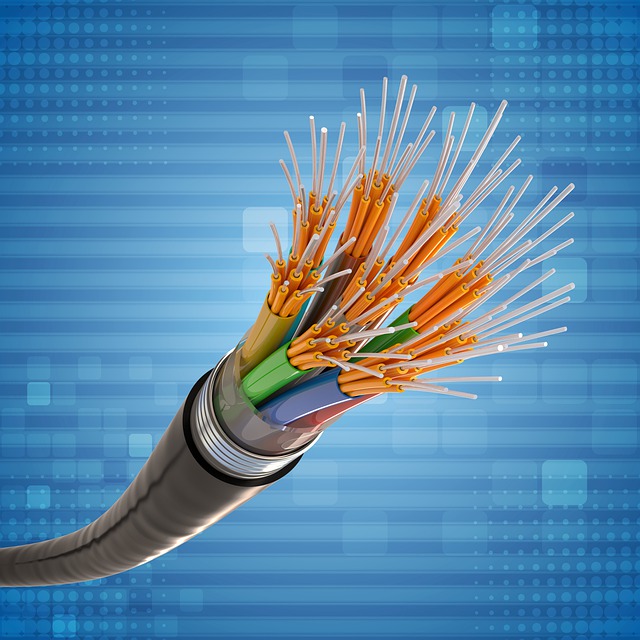To avoid slowing down your internet speed by your ISP, keep your streaming habits private, or access content limited to specific locations, setting up a VPN on your smart TV can bring you significant advantages. Fortunately, this process can be easily done in just a few steps.
Virtual Private Networks and Smart TVs
Virtual private networks can be helpful in various situations. However, most smart TVs do not come with built-in VPN compatibility. Nevertheless, almost any smart TV can be connected to a VPN, and even non-smart TVs may be able to use a VPN with the right equipment.
Smart TV can connect to a VPN
Smart TV compatibility with VPN services
There are several ways you can configure a VPN to work with your TV. The choice you make will depend on your personal preferences, technical expertise, budget, and available equipment. We will outline a few methods for setting up a VPN on a TV and explain the reasons for doing so.
Consider which path you decide to follow
Choose the path you want to follow
budget
Budget
Why should you use a VPN on a television?
Today's TVs are not just used for watching local network shows or cable programs – they also allow for streaming on-demand content from various streaming platforms.
TVs
TVs
Streaming services
Streaming providers
The variety of streaming content available today may seem limitless, but some content is restricted by region. If you want to access more content or watch programming that is not available in your country, you can use a VPN on your smart TV to change your location and access almost any content you desire.
If you are located in the UK but wish to access American content, you can use a VPN to connect your smart TV to a server in the US. By changing your IP address to one in the US, the streaming service will think you are in the US and provide access to American shows. Be sure to confirm with the streaming service whether using a VPN is allowed to avoid any risk of losing access to the account.
Even though you might not be interested in unblocking geo-restricted video content on your smart TV, using a VPN on your TV can help prevent your ISP from monitoring your viewing habits or tracking the internet activity generated by your smart TV.
When you use a VPN, you're creating a secure connection between your device and the internet through a remote VPN server. This means that all the internet activity you send through this encrypted connection is hidden from anyone trying to monitor you, such as your ISP. By setting up a VPN on your TV and connecting to a VPN server, your ISP won't be able to see what you're watching or understand the internet data going to or from your TV.
How to configure a VPN on a smart television
– Like with any software or service, the first step is to consider what is compatible with your operating system. The best smart TV operating systems for VPN compatibility are Amazon Fire TV, Google's Android TV, and Google TV. However, if you use Roku, Apple TV, Samsung, Vizio, LG, or any other platform, there are still options available.
– Here are some practical methods to connect a VPN to your smart TV.
If you own a Fire TV
If you own one of Amazon's latest Fire TVs, you can download a VPN directly onto your TV as long as the VPN provider has a compatible app for the Fire TV. Not all VPNs are compatible with Amazon Fire devices, so you will need to select one of those that are. Recommended VPNs for Amazon Fire devices include Surfshark, NordVPN, and ExpressVPN. If you are not already subscribed to one of these VPN providers, you can sign up and download their app from the Amazon Appstore. All three offer a 30-day money-back guarantee, allowing you to test each one risk-free and determine which one suits your needs best.
Amazon has released their latest Fire TV models.
Amazon's latest Fire TV models
VPN now has an app available for Fire TV
VPN has a Fire TV application.
Surfshark
Surfshark
NordVPN
NordVPN
ExpressVPN
ExpressVPN
The process involves downloading the app, signing into your VPN account on Amazon Fire TV, and then connecting to a VPN server. Once connected to the VPN on Fire TV, you can access blocked streaming content and keep your viewing activity private from your ISP.
If you own an Android/Google TV
Similarly, if your smart TV operates on Google's Android system, you can easily install a VPN on your TV by downloading the VPN's app from the Play Store directly to your TV. Even with Google rebranding Android TV to Google TV for a more seamless platform, you can still access Android apps on the Play Store after switching to Google TV because it still utilizes Android in the background.
Google TV
Google TV
To begin, you will need to acquire a VPN that is compatible with Android if you don't already have one. Following this, access the Play Store on your Google TV, search for the app from your VPN provider, and proceed to download it. After successfully downloading the VPN app on your TV, log in and establish a connection to a VPN server.
VPN for Android
VPN compatibility with Android devices
If you wish to access US-only content, you should connect to a VPN server located in the US. Similarly, connecting to a server in the UK is necessary for UK-only content. For those primarily concerned with protecting their TV viewing privacy and avoiding monitoring by ISPs or other entities, it is advisable to connect to a VPN server closest to your physical location. This ensures that you can achieve the best possible connection speeds through your VPN.
A potentially more challenging (and costly) method to incorporate VPN into a smart TV
Setting up a VPN on a smart TV that does not use the Android operating system can be done by configuring a VPN connection through a compatible router. However, it's important to note that not all routers support VPN connections. If you don't already possess a compatible router, you may need to invest in one which could be expensive to ensure smooth streaming. Additionally, even if your router is compatible, installing a VPN may not be straightforward and there is a risk of damaging your router or losing its warranty if not done correctly.
VPN Connection Through a Router
VPN connection through a router
The best VPN providers offer detailed guidance for setting up VPN on various router models. Support is available to assist you through the installation process. If you prefer not to install it yourself, some VPNs, like FlashRouters, sell pre-configured routers with VPN compatibility. However, this convenience comes at a higher cost of $100 to $150.
To ensure your TV is using the VPN connection and access blocked content while keeping your TV viewing activity private, connect your TV to your VPN router after successfully installing and configuring the VPN on your router. You can then proceed to connect to a VPN server through your router firmware's dashboard.
Read more: The advantages and disadvantages of using a VPN on a router
Continue reading:
The Advantages and Disadvantages of Setting Up a VPN on a Router
The Advantages and Disadvantages of Using a VPN on a Router
Share your VPN with your smart TV in a resourceful way
If you don't have a Google TV or a VPN-compatible router and don't plan to buy either, you can still share your VPN connection with your smart TV using the equipment you currently have available.
You have the option to connect your computer to your smart TV using an ethernet cable, along with any necessary adapters. Once the TV and computer are connected, you can access a VPN server on your computer for a wired connection solution. Though not always the most convenient method, it is still a viable option.
The easiest and most practical way to do this is by using your laptop or desktop as a Wi-Fi hotspot and connecting your TV to your computer wirelessly.
To set up a VPN on MacOS, you will need to manually configure it using the L2TP or IKEv2 protocol. Connect your Mac to your router with an ethernet cable to share the VPN connection over Wi-Fi. Your VPN provider will offer specific instructions to help you set up the service on your Mac.
On Windows:
On Windows
– Go to Settings -> Network & Internet -> Mobile hotspot.
– Click on Edit to customize a network name and password for your hotspot.
– Choose Wi-Fi under Share my internet connection over.
– Turn on the Mobile hotspot under Share my internet connection with other devices.
– Connect your smart TV to the newly created hotspot just like connecting to any other Wi-Fi network and also connect to your VPN on your PC.
Settings
Networking & Internet
Mobile hotspot
Edit
Wi-Fi
Share my internet connection over
On
How to share your internet connection with other devices
On Mac:
Please make sure to follow these instructions on a Mac computer.
On Mac:
– Connect your Mac to your Wi-Fi router with an Ethernet cable, using an adapter if needed.
– Navigate to System Preferences and then click on Sharing.
– Look for Internet Sharing in the menu on the left.
– Choose your VPN connection from the Share your connection from dropdown list.
– In the To computers using section, tick off Wi-Fi.
– Click on Wi-Fi Options located at the bottom right.
– Create a network name and password for your hotspot, select WPA2 Personal for security, and click OK.
– Tick the box next to Internet Sharing, then press Start when prompted.
– Connect your TV to the newly created Wi-Fi hotspot like any other network and ensure that your VPN is active on your Mac.
System Preferences
Sharing
Internet Sharing
Share your personal connection
Computers using need to
Wi-Fi
Wi-Fi Options
WPA2 Personal
Security
OK
Online Sharing
Start
The DIY Guide for Setting Up a VPN on a Regular TV
Even if you don't own a smart TV, you're fortunate because you can configure a VPN on it by connecting a streaming device like a Roku, Amazon Firestick, or Google Chromecast to the TV. These clever gadgets effectively transform any TV with an HDMI port into a smart TV, at a much more affordable price than an actual smart TV.
Streaming Device
Streaming device
Roku
Roku
Amazon Firestick
Amazon Firestick
Basically, you can follow the methods mentioned above to connect a VPN to your TV. If you use Chromecast with Google TV or Amazon Firestick, you can directly download the VPN through the Play Store or Amazon Appstore, respectively. The process involves connecting to the VPN through your streaming device's interface instead of your TV interface. By doing so, you can still enjoy the privacy and content unblocking benefits of a VPN, but only for the content you watch on your streaming device.
Chromecast with Google TV
Chromecast with Google TV
Streaming devices like those provided by Roku and other brands have the ability to transform a regular TV into a smart TV.
Streaming devices such as those provided by Roku and other brands have the capability to transform a regular television into a smart TV.
Sarah Tew/CNET
Next steps to set up a VPN on your smart TV
When setting up a VPN on your smart TV, there are a couple of factors to keep in mind. Initially, you'll require a VPN that offers high speeds to ensure smooth streaming without interruptions. Besides, it's important to choose a VPN with servers in the specific countries you wish to access content from.
VPN offering high-speed connections
VPN that offers high speeds
If you own a Google TV and want to install a VPN app from the Play Store onto your TV, the VPN must be compatible with Android. Likewise, your VPN needs to be compatible with Amazon Fire TV if you wish to use it directly on your Amazon Fire TV.
Android-compatible
Android-compatible
Amazon Fire TV-compatible
Amazon Fire TV-compatible
If you prefer to use a VPN with your router to connect your TV, it's essential to ensure that your VPN service supports router connections and provides setup instructions for your specific router model. Additionally, having access to knowledgeable technical support can be beneficial if you require assistance during the setup process.
You should also ensure that your VPN has the necessary privacy features to safeguard your viewing habits and keep them private from prying eyes.
The VPNs we suggest for meeting your needs and requirements on your smart TV are ExpressVPN, Surfshark, and NordVPN. Any of these options will effectively handle your unblocking and privacy concerns.
ExpressVPN
ExpressVPN
Surfshark
Surfshark
NordVPN
NordVPN


























